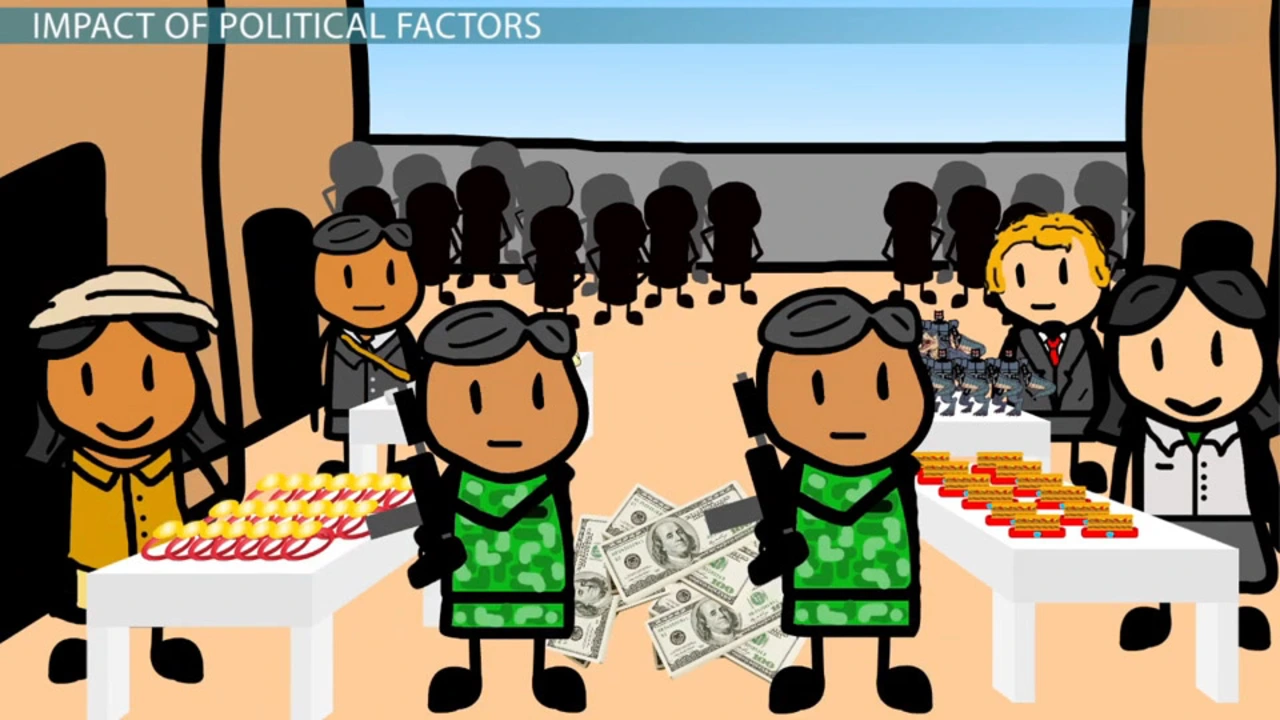What is economic development?

Defining Economic Development
The concept of economic development is often misunderstood or simply overlooked. In this section, we'll discuss the basic definition of economic development, which is the process of improving the quality of life for all citizens within a country or region. This process involves creating new job opportunities, increasing income levels, and fostering overall economic growth.
Economic development is not limited to the growth of the gross domestic product (GDP). Instead, it is a multidimensional concept that takes into account factors such as social, political, and environmental changes. By understanding what economic development truly entails, we can better recognize its importance and impact on our daily lives.
Measuring Economic Development
While we now have a basic understanding of what economic development is, it's essential to explore how it can be measured. There are various indicators used by economists and policymakers to evaluate the degree of economic development in a country or region. Some of the most common indicators include GDP per capita, the Human Development Index (HDI), and the Gini Coefficient.
Each of these indicators provides different insights into the overall economic development of a region, helping to create a comprehensive picture of its progress. Understanding these measurements can help us to critically evaluate the effectiveness of various economic development strategies and policies.
The Role of Government in Economic Development
Government plays a crucial role in promoting and fostering economic development within a country. Through the implementation of various policies and programs, governments can create a favorable environment for businesses and entrepreneurs, stimulate investment, and encourage economic growth.
Some examples of government-led initiatives that can contribute to economic development include investing in infrastructure, providing incentives for businesses, and creating a stable and predictable regulatory environment. By understanding the role of government in this process, we can better appreciate the impact of political decisions on our economic well-being.
Private Sector Contributions to Economic Development
While government plays a significant role in economic development, the private sector is equally important. Businesses, both large and small, contribute to economic growth through job creation, innovation, and investment.
Entrepreneurs and startups, in particular, are vital to the process of economic development. They drive innovation, create new industries, and help to diversify the economy. By recognizing the contributions of the private sector, we can see that economic development is a collaborative effort between various stakeholders.
International Trade and Economic Development
International trade is another essential component of economic development. By engaging in trade with other countries, a nation can access new markets, stimulate domestic industries, and increase overall economic growth.
Trade can also encourage technology transfer and the sharing of knowledge, leading to increased innovation and productivity. Understanding the relationship between international trade and economic development can help us appreciate the global connections that impact our local economies.
Infrastructure and Economic Development
Infrastructure is the backbone of any economy, providing the essential framework for economic activities to take place. Investments in transportation, energy, water, and telecommunications systems can significantly impact a region's economic development.
Well-developed infrastructure can attract businesses and investors, create new job opportunities, and improve overall living standards. By recognizing the importance of infrastructure in economic development, we can prioritize investments that will have the most significant impact on our communities.
Education and Workforce Development
Education and workforce development are closely linked to economic development. A well-educated and skilled workforce is essential for attracting businesses, fostering innovation, and maintaining a competitive edge in the global economy.
Investing in education and workforce training programs can help to ensure that individuals have the skills and knowledge needed to contribute to their local economies. By understanding the connection between education and economic development, we can prioritize policies and programs that will create a more prosperous future for all.
Sustainable Economic Development
As we strive for economic development, it's essential to consider the long-term sustainability of our actions. Sustainable economic development focuses on creating growth that is both economically viable and environmentally responsible.
Examples of sustainable economic development strategies include promoting renewable energy, supporting local businesses, and implementing policies that encourage responsible resource management. By prioritizing sustainability in our economic development efforts, we can ensure that we create a prosperous future without compromising the well-being of our planet.
Inclusive Economic Development
Inclusive economic development is an approach that aims to ensure that all members of society can benefit from economic growth and improvements in living standards. This approach recognizes that economic development should not only be focused on increasing GDP but also on reducing inequality and improving social outcomes for all citizens.
Examples of inclusive economic development strategies include providing access to affordable housing, promoting workforce diversity, and investing in social programs that support vulnerable populations. By adopting an inclusive approach to economic development, we can work towards creating a more equitable and just society.
Conclusion: The Importance of Economic Development
By exploring the various facets of economic development, we can appreciate the importance of this concept in shaping our daily lives. Economic development encompasses a wide range of factors, including government policy, private sector contributions, international trade, infrastructure, education, and sustainability.
By understanding and prioritizing economic development, we can work together to create a more prosperous, inclusive, and sustainable future for all members of society.

Write a comment